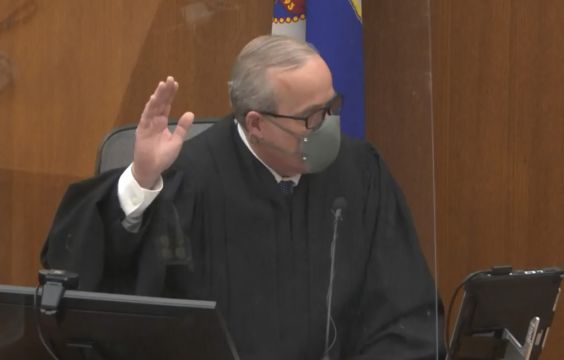The long process of jury selection has begun in the trial of a former Minneapolis police officer charged in George Floyd’s death.
Derek Chauvin faces second-degree murder and manslaughter charges.
Several potential jurors were dismissed Tuesday, including some who said they would not be able to set aside their strong views about the case.
A widely seen bystander video of Mr Floyd’s arrest last May recorded his repeated pleas that he could not breathe while Chauvin pressed his knee into his neck.
The three jurors who were selected — two men and one woman — all said they had heard some details about the case against Chauvin but would be able to put aside what they heard or opinions they had formed and make a decision based on evidence in court.
One of the selected jurors said he had not seen the video of Mr Floyd’s arrest, while the others described seeing it minimally.
Jury selection is proceeding even as a potential appellate court ruling could halt the trial, with the state wanting to add a third-degree murder charge against Chauvin.
Legal experts say reinstating the third-degree murder charge would improve the odds of getting a conviction.
Chauvin’s lawyer Eric Nelson said on Monday he would ask the state Supreme Court to review a Court of Appeals decision that ordered Judge Peter Cahill to reconsider the charge.

Jury selection is expected to take at least three weeks, as prosecutors and defence lawyers try to weed out people who may be biased against them.
“You don’t want jurors who are completely blank slates, because that would mean they’re not in tune at all with the world,” Susan Gaertner, a former prosecutor, said.
“But what you want is jurors who can set aside opinions that have formed prior to walking into the courtroom and give both sides a fair hearing.”
Mr Floyd was declared dead on May 25 after Chauvin, who is white, pressed his knee against the handcuffed black man’s neck for about nine minutes, holding his position even after Mr Floyd went limp.
Mr Floyd’s death sparked sometimes violent protests in Minneapolis and beyond, and led to a nationwide reckoning on race.
The earliest that opening statements will begin is March 29.







